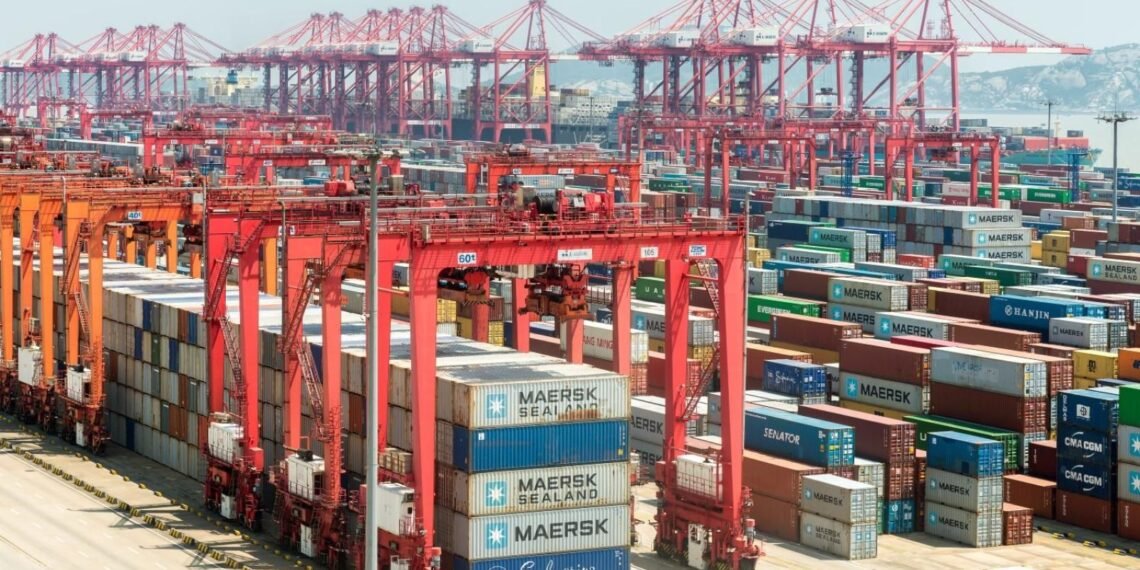A storm is brewing in China’s shipping industry, and the world is watching. Social media is exploding with alarming reports that major Chinese ports—including Shanghai, Shenzhen, and Ningbo—are at a standstill, with containers piling up and no ships leaving the country. This could trigger a global supply chain catastrophe, sending shockwaves through economies already strained by trade wars and inflation.
Eyewitness posts on X (formerly Twitter) claim that nearly 90% of ships at Chinese ports are anchored, with only a trickle still operating. Some users allege that factories are shutting down, workers are being laid off, and air freight has plummeted by 90%, all due to crushing U.S. tariffs and aggressive trade policies.
One post even claims that 3,535 ships are stuck at port, unable to move. The narrative suggests that President Trump’s proposed $1.5 million-per-ship fee for Chinese-built vessels docking in the U.S. has brought China’s maritime trade to its knees.
But here’s the twist—major news outlets aren’t reporting a full-blown port shutdown. The closest confirmation comes from an article in January noting congestion at Yantian Port due to pre-Lunar New Year shipping surges and looming U.S. tariffs. No mention of total paralysis. So, is this a case of social media hype, or is China quietly facing a shipping meltdown?
Read also: China makes AI Education mandatory for Students starting September 1 2025
Experts point to several possible explanations. First, Trump’s steep tariffs could be forcing shipping companies to avoid U.S. routes, leaving containers stranded. Second, China’s economy is already struggling with deflation and a property crisis—could factory slowdowns be choking exports? Third, the Lunar New Year always disrupts logistics, but this year’s chaos seems extreme.
If the worst-case scenario is real, the fallout would be catastrophic. China controls a massive chunk of global trade—electronics, machinery, and consumer goods could vanish from shelves overnight. Prices would skyrocket, supply chains would snap, and economies would reel. The 2021 Suez Canal blockage would look like a minor hiccup compared to this.
Yet skeptics warn that sensational claims often spread faster than facts. China’s government tightly controls information, so minor disruptions could be exaggerated—or suppressed. Meanwhile, U.S. trade hawks might be fueling the narrative to justify tougher policies.
One thing is certain: If China’s ports truly freeze, the world will feel it within days. Until then, businesses and governments should brace—but verify. The truth may lie somewhere between a viral panic and a looming disaster.






